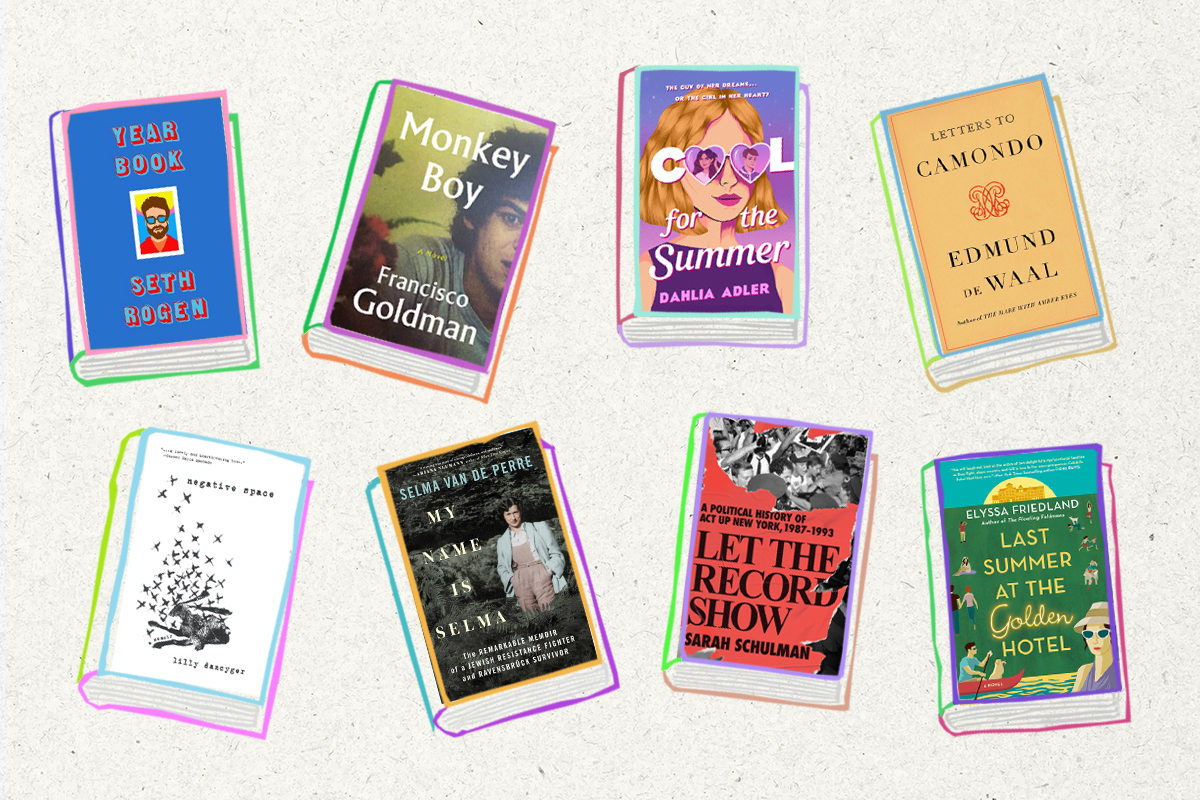April showers bring May flowers, and April Jewish books bring… May Jewish books? I’m still working on it, but what I do know is there is a true bounty of new Jewish books being released this spring. We’re excited to be back with our most anticipated Jewish books of the month, from three very different memoirs — is this the only book list where Seth Rogen will sit next to Jewish resistance fighter Selma van de Perre? — to a history of a Sephardi Jewish art collector in Paris to a queer, Jewish bisexual YA romance.
Without further ado, for May 2021, here are eight books across all genres we’re excited about, plus some other notable releases you might want to check out. Bonus: This list is all shoppable on Bookshop, a platform supporting local bookstores.
1. Monkey Boy by Francisco Goldman (May 11)

Francisco Goldman, the celebrated American writer, is back with an autobiographical novel of a man very similar to himself. “Monkey Boy” is the tale of Francisco Goldberg, a man with a Jewish father and a Guatemalan Catholic mother. Francisco is returning home to Boston to visit his mother in a nursing home, and the book is set over the four-day journey — which brings up reflections on his past, on love, and on his complicated identity. “Monkey Boy” is a moving look at what it means to be Jewish and Catholic, with parents who are immigrants from vastly different parts of the world, a son of an abusive father, and a Guatemalan kid in a white Boston suburb. Throughout, there’s also stories of Goldman’s — er, Goldberg’s — work as a journalist in Central America and Mexico, and of writing about cruelty and violence.
Here’s one passage that has stuck with me: “All my life, I’ve been answering some version of the inevitable question: But aren’t you Jewish? (Weren’t you just introduced to me as Frank Goldberg? Then what do you mean that you were baptized in that church?) I’m half-Jewish, I’ve always answered. Usually adding: My mother is Catholic. (I’m half-Jewish and half-Catholic, I’m sure I used to say as a boy.) Those questions always felt threatening to me; to some degree they still do…” Goldman writes. “When I was a kid, I never would have dared to say out loud: I want to be just one thing, like a normal person is, though I thought it all the time.”
Read if you’re into: stories of complicated identity, love, family. The Jewish angle: I mean, the whole thing — Goldman is Jewish, as is his protagonist, Goldberg. Get it here.
2. Cool for the Summer by Dahlia Adler (May 11)
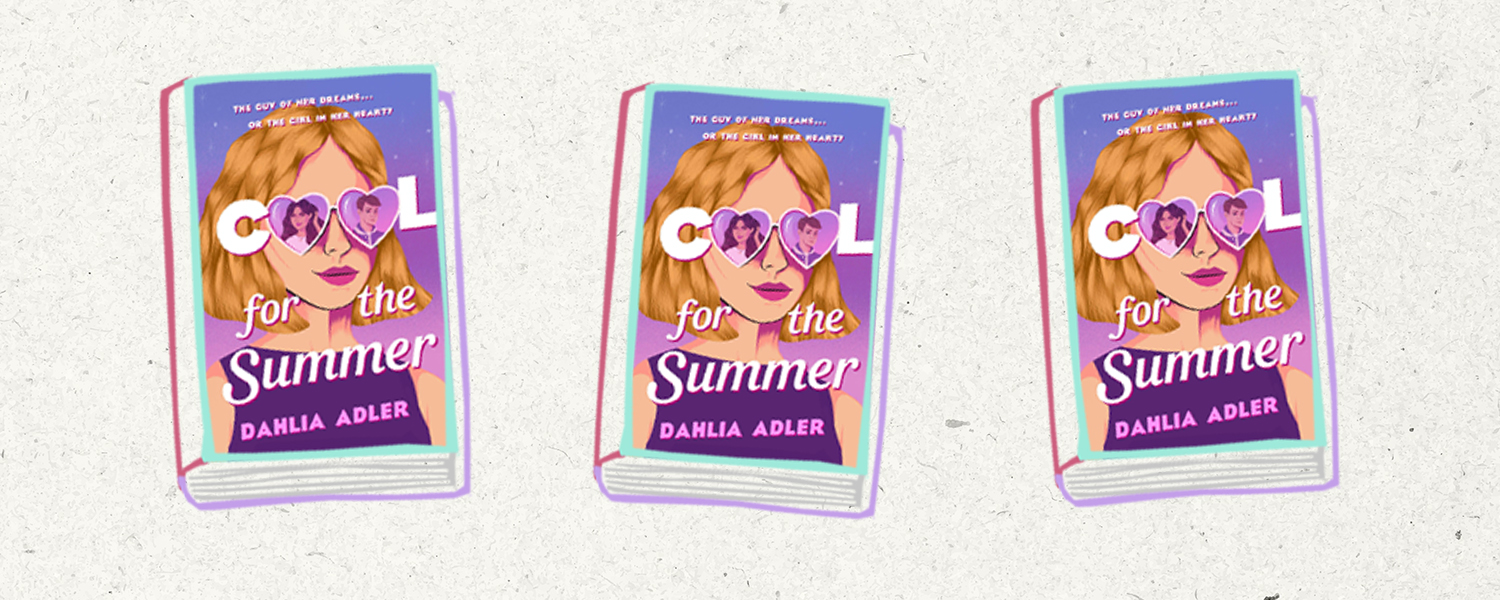
Dahlia Adler, a Jewish author, is here with the Jewish bisexual YA love story of our dreams. “Cool for the Summer” is the story of Larissa (AKA Lara), who is starting her senior year of high school. The guy of her dreams, Chase, is finally into her. But then Jasmine, her summer fling who just moved into town, shows up (think “Grease,” but gay and way less problematic?). Jasmine and Lara spent all summer together, thinking they would never see each other again. Each of the girls feels so real and authentic to their cultural backgrounds: Jasmine is a Syrian Jew, and Lara is the Jewish daughter of a Russian mom. The tagline is: “If Larissa’s finally got the guy, why can’t she stop thinking about the girl?” Hell yes. It’s fun, sexy, sweet, and the perfect spring read. And yes, it’s named after that Demi Lovato song (which also gets a really romantic plotline in the book).
Read if you’re into: queer YA! Jewish YA! Queer Jewish YA!! The Jewish angle: Lara and Jasmine are both Jewish! Get it here.
3. Negative Space by Lilly Dancyger (May 1)
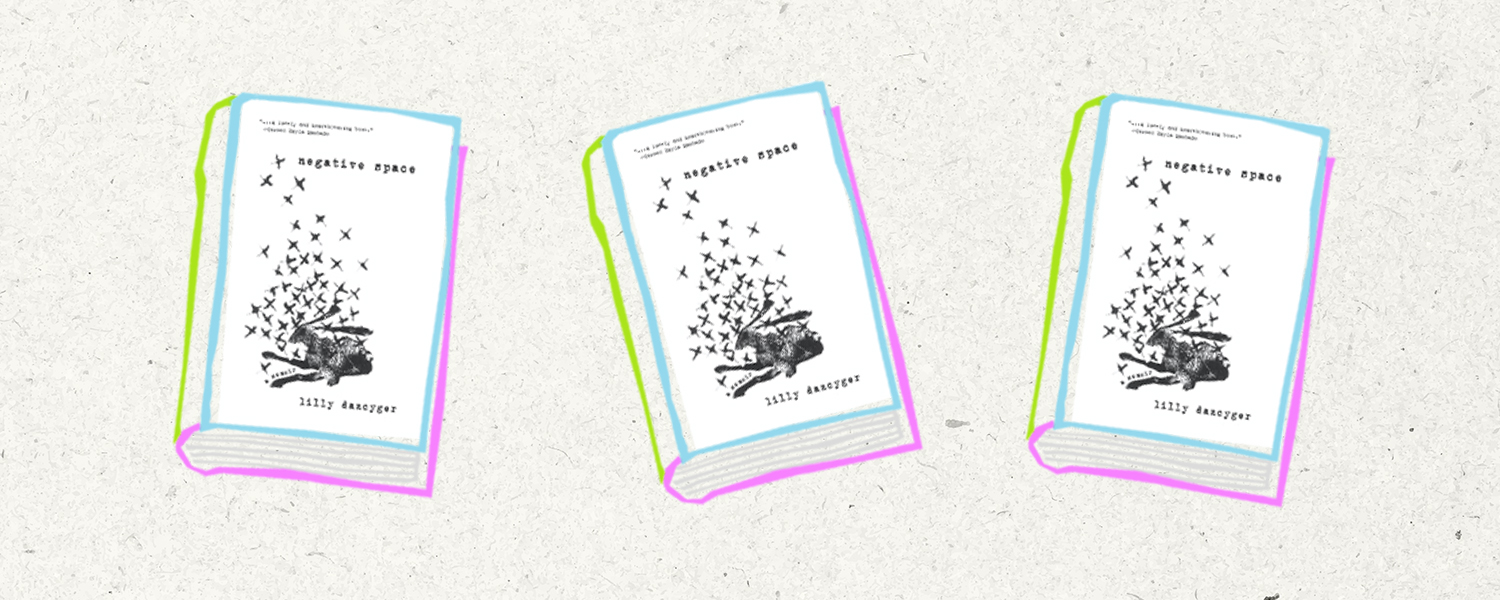
Lilly Dancyger’s memoir, “Negative Space,” is, at its heart, the story of her relationship with her father. “I think of the book itself as very Jewish in the way that the whole thing is in pursuit of answering unanswerable questions. The whole book is a process of striving to understand, while also acknowledging the limits of what it’s possible to know, and embracing grey areas. Which feels really Jewish to me, in the way that I understand what that means,” Dancyger told Alma. Dancyger’s father, Joe Schactman, was a sculptor who struggled with a heroin addiction and died when she was just 12 years old. It’s a powerful look at being “a fatherless woman after years as a fatherless girl,” and how grief and addiction reverberate over time. She includes images of her father’s work throughout the memoir, and I love how the visual gives you a clear understanding of the work she’s writing about. Dancyger, a Jewish writer and editor, previously edited “Burn It Down: Women Writing About Anger,” and her debut memoir does not disappoint.
Read if you’re into: memoirs, stories of families impacted by addiction, Jewish stories, art. The Jewish angle: Lilly is Jewish, as was her father, Joe. Get it here.
4. Let the Record Show: A Political History of ACT UP New York, 1987-1993 by Sarah Schulman (May 18)
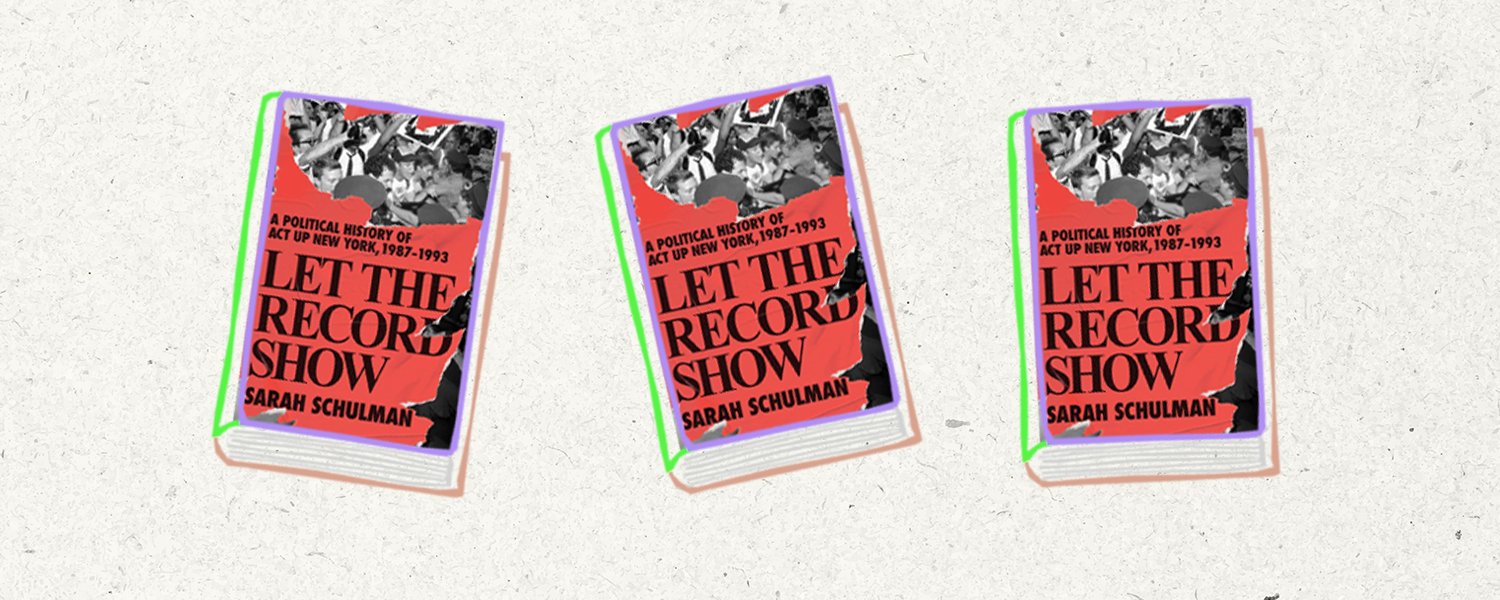
Jewish novelist, playwright historian, activist (and so many more titles) Sarah Schulman spent over two decades working on “Let the Record Show,” a history of ACT UP (AIDS Coalition to Unleash Power) based on 188 interviews with surviving members. ACT UP was founded in part by gay Jewish activist Larry Kramer, who passed away last year at the age of 84. Her work began when she started the ACT UP Oral History Project in 2001, spending the next two decades interviewing surviving ACT UP members, and resulted, in part, in the 2012 ACT UP documentary “United in Anger.” “Let the Record Show” ends in 1993, when, Schulman explains, a particular era of the organization ended. It’s a hefty tome — clocking in at just under 700 pages — but it’s full of photos, archival documents and powerful testimonies.
“In so many ways. Sarah Schulman has written more than an authoritative history of ACT UP NY here — it is a masterpiece of historical research and intellectual analysis that creates many windows into both a vanished world and the one that emerged from it, the one we live in now. I can’t think of a book like this — it is an almost entirely new model, uniquely possible as the result of Schulman’s life’s work,” writes novelist Alexander Chee.
Read if you’re into: history, AIDS activism, oral history. The Jewish angle: Schulman is Jewish! Get it here.
5. Yearbook by Seth Rogen (May 11)
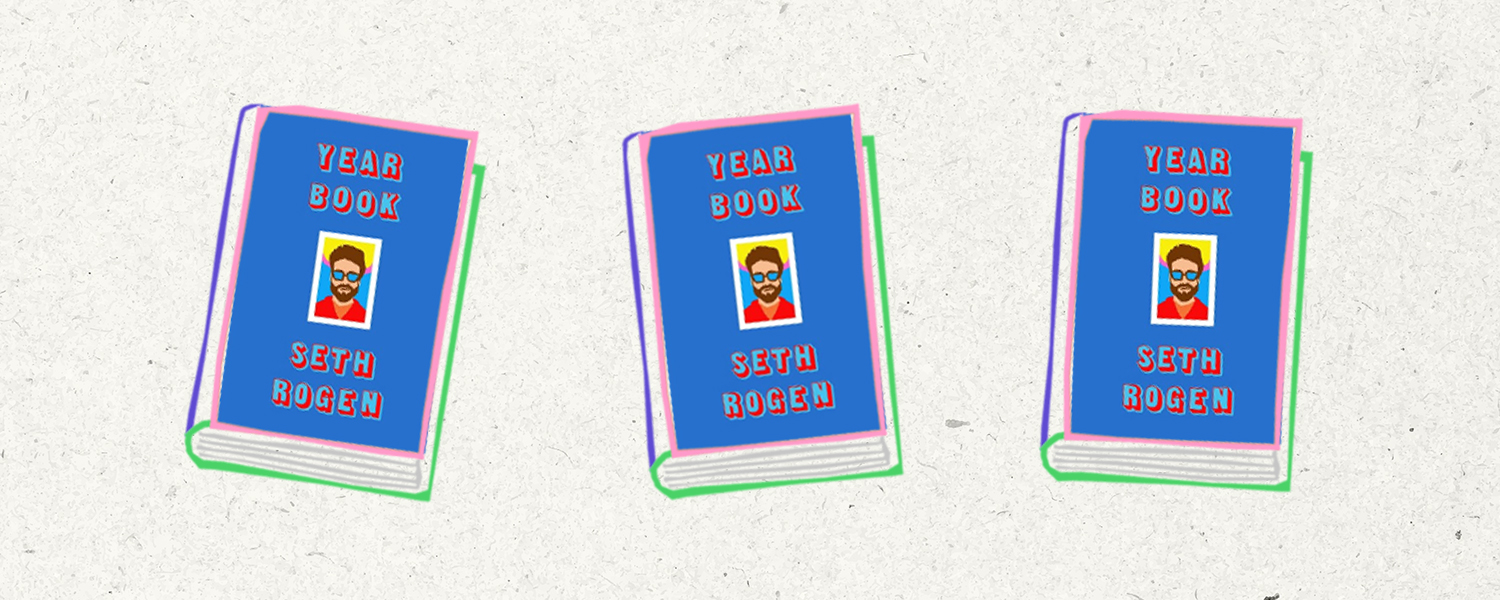
The only blurb about Seth Rogen’s memoir that really matters is from his mom, Sandy: “At first I was worried that Seth was writing a book, because I was like, ‘Oh no! What’s he gonna say?’ I was actually scared to even read it. But I’m very happy I did. It’s not really a memoir, like I thought it might be. I guess it’s more of a bunch of funny true stories? Does that make sense? He talks about doing stand-up when he was a kid (I drove him to all his shows!), his grandparents, high school, moving to LA, meeting some famous people, things like that. If I’m being honest, I really wish there wasn’t so much drug talk. Why does he need all that! It’s like, ‘We get it!’ And some of the stories? I mean, they’re entertaining, but I was just shocked they happened and he never told me! Overall, I think it’s more sweet and funny than anything, so I like it, and I’m glad he wrote it, but I’d be even more glad if he called me more.”
As Seth himself says, “I talk about my grandparents, doing stand-up comedy as a teenager, bar mitzvahs, and Jewish summer camp, and tell way more stories about doing drugs than my mother would like.”
Read if you’re into: Seth Rogen. The Jewish angle: Well, Seth Rogen. Get it here.
6. My Name Is Selma: The Remarkable Memoir of a Jewish Resistance Fighter and Ravensbrück Survivor by Selma van de Perre (May 11)

Selma van de Perre is 98 years old. As a Jewish teen in the Netherlands, she watched her entire family get sent to Auschwitz — and so she dyed her hair blond and joined the Dutch resistance organization TD Group, using the pseudonym Margareta van der Kuit. For two years, she passed as a non-Jew and worked with the Resistance, until she was deported to Ravensbrück women’s concentration camp. Meet Selma in this video:
And then go read her memoir. Seriously.
Read if you’re into: Stories of female Jewish resistance. The Jewish angle: Jewish resistance during the Holocaust. Get it here.
7. Last Summer at the Golden Hotel by Elyssa Friedland (May 18)
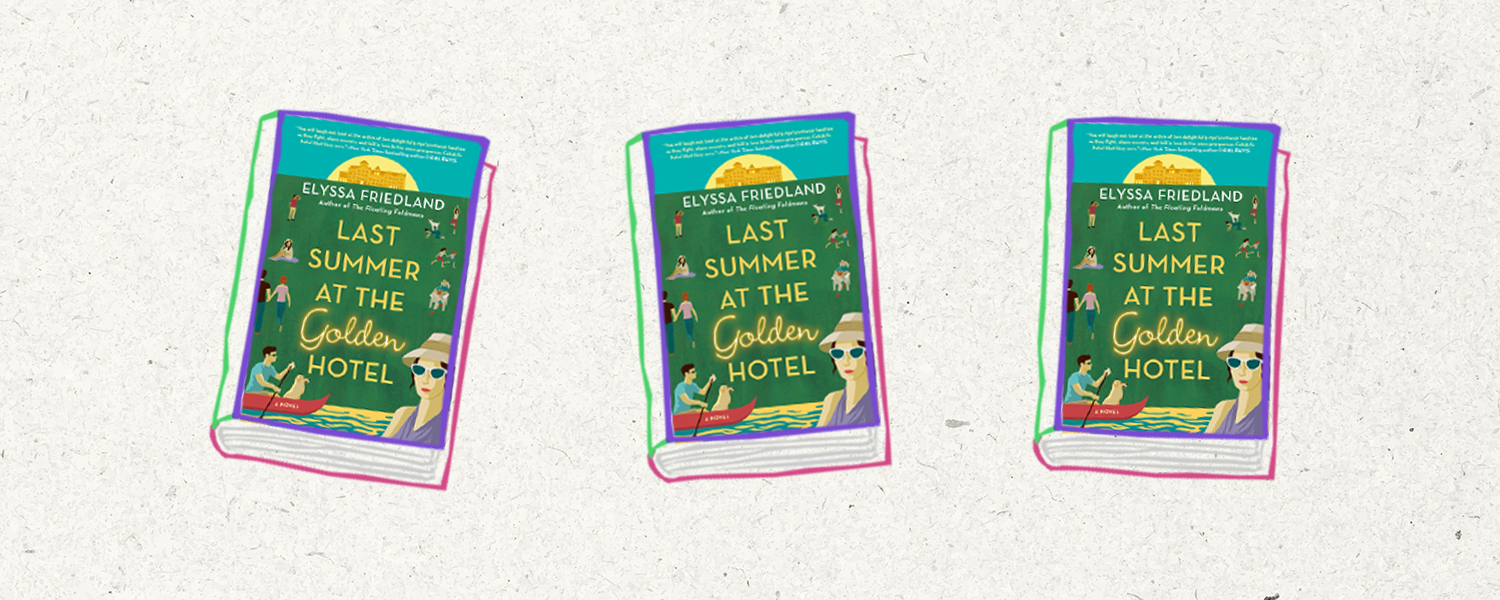
Two Jewish families, the Goldmans and the Weingolds, have owned the Golden Hotel in the Catskills for decades. But it’s falling into disrepair, especially after the death of the Goldman patriarch, Benny, and there’s an offer in on the hotel to the tune of millions of dollars. So, the families have to reunite and decide if they’re going to sell or not. As they all return to the hotel (except Brian Weingold, who has been running the place), old secrets emerge. The two very dysfunctional families clash, there’s unexpected romance, and it’s all simply a delight. What I loved about “Last Summer at the Golden Hotel” was how the perspectives switched between characters to give you a real sense of what is happening. And I cannot resist a book that opens with a family tree and a map. It’s the perfect Jewish spring/summer read.
Read if you’re into: Did you love those Catskill episodes of “The Marvelous Mrs. Maisel“? Are you obsessed with “Dirty Dancing“? If yes, this novel is absolutely for you. The Jewish angle: Jewish families, the Catskills, Jewish history in New York. Get it here.
8. Letters to Camondo by Edmund de Waal (May 11)
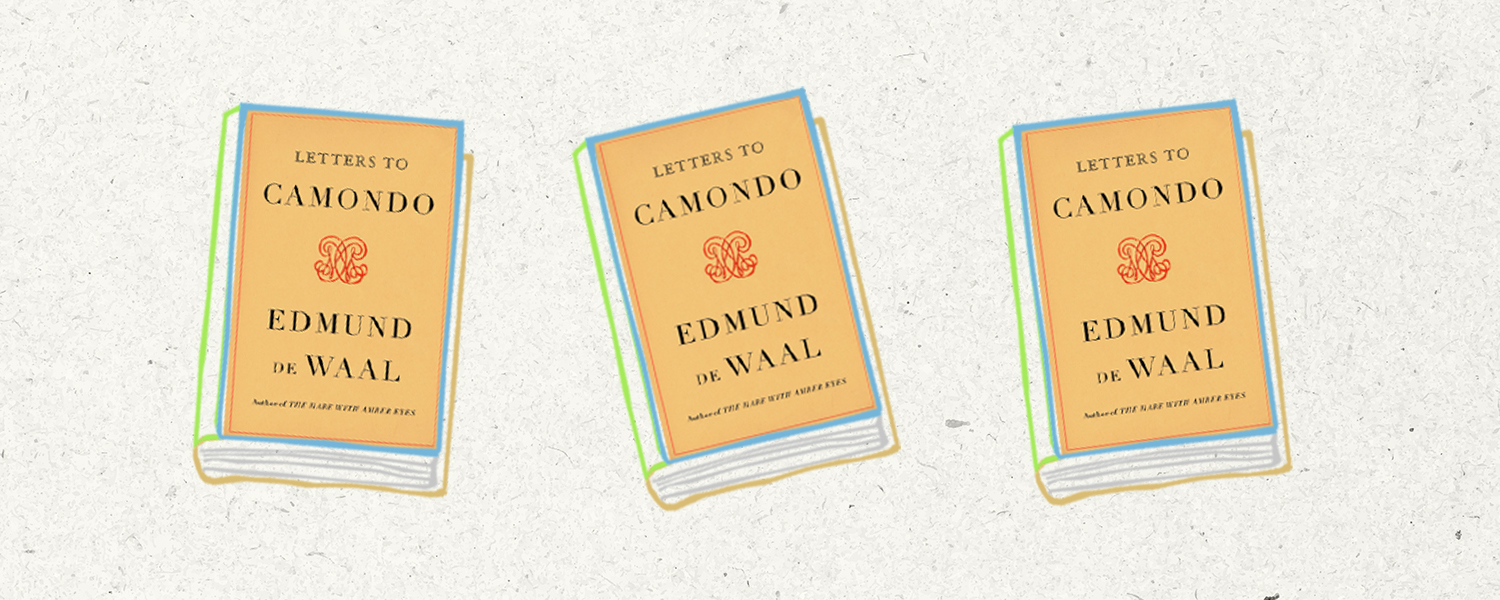
Edmund de Waal, “an artist who writes,” is a British ceramicist who wrote a memoir in 2010, The Hare with Amber Eyes, about the story behind a collection of 264 Japanese netsuke (small, intricately carved figures) — which ended up to be a story of his family, the Ephrussi family, a Jewish banking dynasty, and their demise in the Holocaust. His newest, “Letters to Camondo,” is similar in themes — the legacy of a prominent Jewish family, their relationship with art, and the decimation caused by the Holocaust all weave throughout — and just as magnificent. Through 58 letters, de Waal writes to Count Moïse de Camondo, a Sephardic Jewish collector and philanthropist who lived in Paris after his family moved from the Ottoman Empire. After his death, he donated his home to Paris as a museum (Musée Nissim de Camondo), where de Waal spent a year.
“In the silence of lockdown last year, I began writing a series of letters to Moïse de Camondo. I knew his house in the Rue de Monceau in Paris, had spent time in those golden rooms and in the archives high up in the attics. I needed to talk to him about memory and what it means to make a memorial for someone you love, about families and collecting things and keeping them together,” de Waal explained. Within — a memorial to a Jewish intellectual family lost to history, a moving story touching on themes of of assimilation and antisemitism and Jewish identity.
Read if you’re into: Jewish history, Jewish identity, Jewish philanthropists. The Jewish angle: The real-life Camondo family. Get it here.
Other Jewish Books of Note
While I have not personally read these books yet, they are on my radar as ones Jewish readers may be interested in checking out.
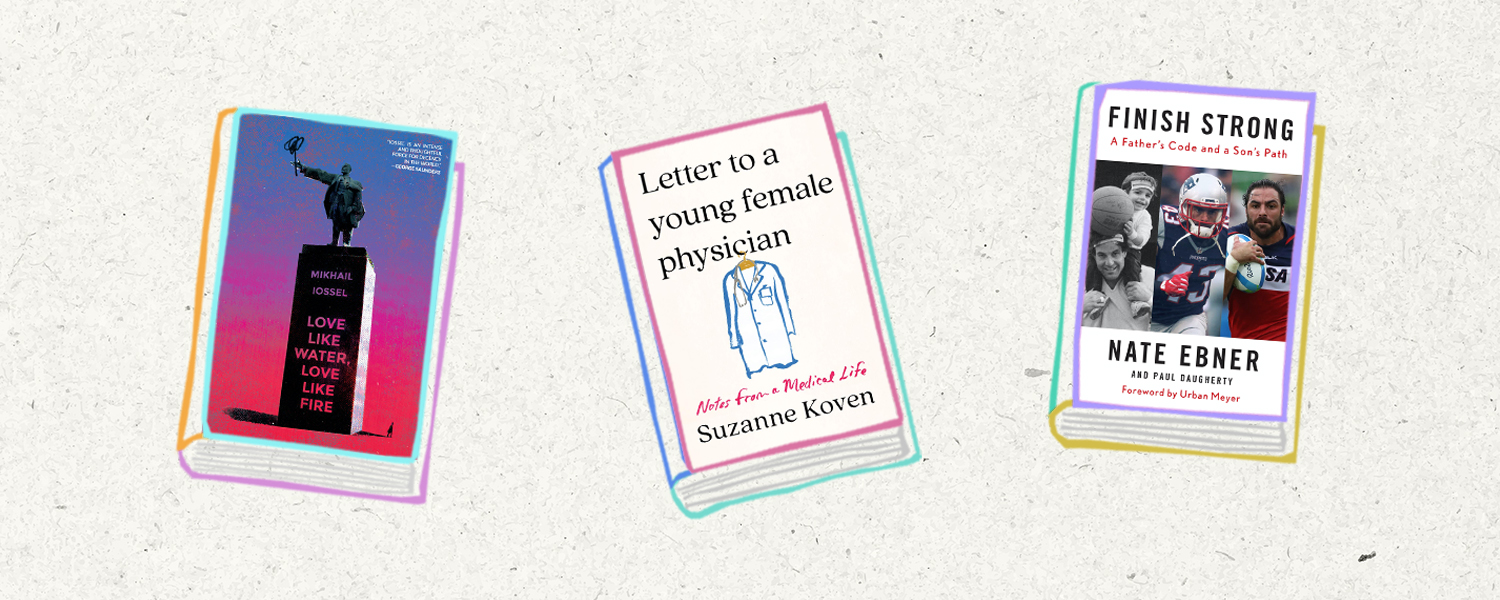
- “The Quiet Boy” by Ben Winters, a mystery featuring a Jewish father, Jay, and his son, Rueben, who are dealing with the fallout of a personal injury case Jay took on a decade ago. (May 11)
- Jewish NFL player and Olympian Nate Ebner writes with Paul Daugherty in “Finish Strong: A Father’s Code and a Son’s Path,” about his journey from Ohio State to the NFL to the 2016 Olympics for rugby, and the impact of his late father. (May 11)
- Jewish sci-fi writer Sarah Pinsker returns with “We are Satellites,” about a world in which a futuristic dystopian technology forever alters one family. (May 11)
- “Love Like Water, Love Like Fire” by Mikhail Iossel is a collection of stories about the Soviet Jewish experience. (May 4)
- Jewish author Jennifer Weiner is back again with “That Summer,” a story of mistaken identity and secrets set in Philadelphia. (May 11)
- Film critic Michael Koresky’s memoir “Films of Endearment: A Mother, A Son and the 80s Films That Defined Us“ is structured through a rewatch of 10 films with his mother. (May 4)
- “To Repair a Broken World: The Life of Henrietta Szold, Founder of Hadassah” by Dvora Hacohen is a biography of Henrietta Szold, with the title taking inspiration from tikkun olam, the Jewish value of “repairing the world.” (May 11)
- Jewish writer and lawyer Eric Berkowitz dives into free speech and censorship in history in “Dangerous Ideas: A Brief History of Censorship in the West, From the Ancients to Fake News.” (May 4)
- In “Letter to a Young Female Physician,” Jewish physician Suzanne Koven reflects on her career in medicine as a woman, writing movingly on motherhood, imposter syndrome, workplace harassment and more. (May 4)
Holocaust/World War II books of note
Yes, this is getting its own section.
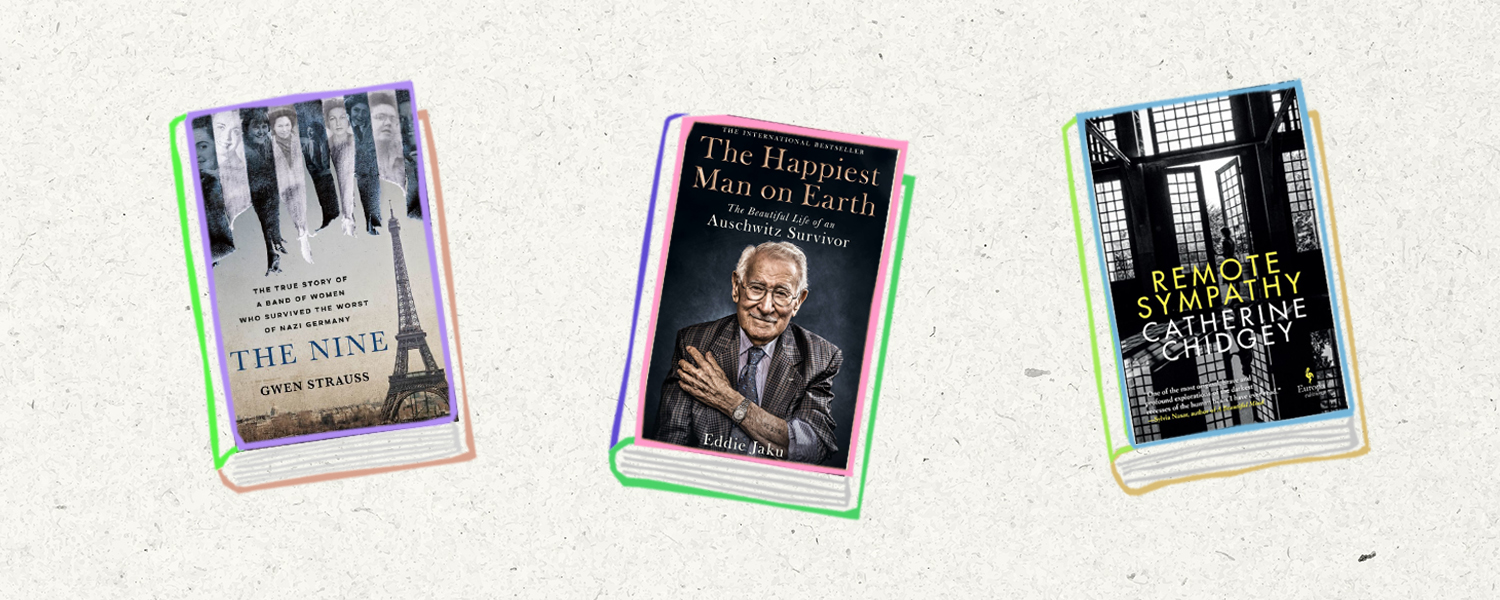
- Allan Gerson’s “Lies That Matter: A federal prosecutor and child of Holocaust survivors, tasked with stripping US citizenship from aged Nazi collaborators, finds himself caught in the middle,” a long subtitle for a powerful story of hunting down Nazis in the U.S. (May 4)
- “The Nine: The True Story of a Band of Women Who Survived the Worst of Nazi Germany” by Gwen Strauss is a story of female Jewish resistance during World War II, based on stories from the author’s great aunt Hélène Podliasky. (May 4)
- In “X Troop: The Secret Jewish Commandos of World War II,” Leah Garrett tells a story of a group of Jewish refugees who fought the Nazis. (May 25)
- “Remote Sympathy” by New Zealand author Catherine Chidgey is coming out in the U.S., telling a story set at Buchenwald — focused on the camp administrator’s wife, Frau Hahn, who is forced into an alliance with prisoner Dr. Lenard Weber. (May 4)
- “The Happiest Man on Earth: The Beautiful Life of an Auschwitz Survivor” by Eddie Jaku, a moving memoir from a Holocaust survivor based on his Ted Talk that will make you cry. (May 4)
Disclosure: This post contains affiliate links, which means we may receive a commission if you click a link and purchase something that we have linked to. While clicking these links won’t cost you any extra money, they will help us keep this site up and running. Thanks!
